-
 Bitcoin
Bitcoin $94,398.7605
0.39% -
 Ethereum
Ethereum $1,799.2680
-0.21% -
 Tether USDt
Tether USDt $1.0004
0.01% -
 XRP
XRP $2.2763
4.65% -
 BNB
BNB $605.5221
0.87% -
 Solana
Solana $149.7805
2.01% -
 USDC
USDC $1.0001
-0.01% -
 Dogecoin
Dogecoin $0.1801
0.72% -
 Cardano
Cardano $0.7151
2.42% -
 TRON
TRON $0.2463
-2.05% -
 Sui
Sui $3.6075
0.56% -
 Chainlink
Chainlink $14.8599
1.80% -
 Avalanche
Avalanche $22.0087
-1.04% -
 Stellar
Stellar $0.2888
0.99% -
 Hedera
Hedera $0.1969
4.18% -
 UNUS SED LEO
UNUS SED LEO $9.0000
0.50% -
 Toncoin
Toncoin $3.3026
0.34% -
 Shiba Inu
Shiba Inu $0.0...01367
-0.59% -
 Bitcoin Cash
Bitcoin Cash $351.3799
-0.67% -
 Polkadot
Polkadot $4.1712
0.73% -
 Litecoin
Litecoin $86.7610
1.89% -
 Hyperliquid
Hyperliquid $18.2216
4.27% -
 Monero
Monero $320.4159
39.15% -
 Dai
Dai $1.0001
0.00% -
 Bitget Token
Bitget Token $4.3106
-1.98% -
 Ethena USDe
Ethena USDe $0.9996
0.01% -
 Pi
Pi $0.6247
-1.83% -
 Pepe
Pepe $0.0...08921
-1.13% -
 Uniswap
Uniswap $5.5012
-3.90% -
 Aptos
Aptos $5.5257
0.50%
Does Orion Protocol (ORN) coin have a future?
With its universal connectivity, non-custodial trading, and optimized trade execution, the Orion Protocol (ORN) coin stands poised to capitalize on the growth of decentralized finance, providing a promising outlook for its future prospects.
Dec 02, 2024 at 10:34 am

Orion Protocol (ORN) Coin: A Comprehensive Analysis of its Future Prospects
The Orion Protocol (ORN) coin has emerged in the blockchain landscape with a bold vision: to establish a decentralized and universal gateway for trading digital assets. This ambitious mission raises questions about the coin's long-term viability and future potential. This article delves into the multifaceted aspects of ORN coin, providing a comprehensive assessment of its prospects.
1. Technological Foundation and Infrastructure:
ORN coin is the backbone of Orion Protocol, a decentralized exchange (DEX) aggregator. It seamlessly connects users to a vast network of exchanges, offering real-time liquidity and optimal trade execution. Unlike traditional centralized exchanges, Orion Protocol operates on a non-custodial model, empowering users with complete control over their assets.
The Orion Protocol infrastructure is built on the Ethereum blockchain, leveraging the platform's security and reliability. By integrating multiple DEXs and centralized exchanges, Orion Protocol creates a single point of entry for traders, reducing the need to navigate multiple platforms and ensuring the best available prices.
2. Tokenomics and Use Cases:
The ORN token plays a pivotal role within the Orion Protocol ecosystem. It serves multiple functions, including:
- Transaction Fees: ORN is used to pay for transactions on the Orion Protocol platform, covering costs associated with matching orders and executing trades.
- Staking: Holding ORN allows users to stake their tokens and earn rewards, contributing to the security and stability of the network.
- Governance: ORN holders have the right to participate in the governance of Orion Protocol, including voting on proposals and shaping the future direction of the platform.
3. Market Adoption and Partnerships:
Orion Protocol has gained significant traction in the blockchain community, garnering support from notable investors and strategic partners. The platform has formed alliances with prominent exchanges, including Binance, KuCoin, and Huobi, further expanding its reach and accessibility to traders.
The protocol's non-custodial architecture and liquidity aggregation capabilities have resonated with users, resulting in a growing user base and increased trading volume. The project's commitment to innovation and user experience has contributed to its burgeoning adoption.
4. Competitive Landscape and Differentiation:
Orion Protocol operates within a competitive landscape of DEX aggregators and centralized exchanges. Among its notable competitors are 1inch Network, Paraswap, and Curve Finance. While these platforms offer similar services, Orion Protocol differentiates itself through the following strengths:
- Universal Connectivity: Orion Protocol aggregates liquidity from a wider range of DEXs and centralized exchanges, offering users access to a broader pool of trading pairs and markets.
- Non-Custodial Trading: Orion Protocol eliminates the need for users to deposit their assets into a centralized custodian, providing greater control and security over their funds.
- Trade Execution Optimization: The platform's smart routing algorithm automatically locates and executes trades on the most advantageous exchanges, ensuring the best possible prices and slippage reduction.
5. Long-term Prospects and Challenges:
Assessing the future prospects of ORN coin requires an examination of the long-term potential and challenges facing Orion Protocol:
- Growth of Decentralized Finance (DeFi): The rise of DeFi has created a fertile ground for DEX aggregators. The continued adoption of DeFi applications will positively impact the demand for Orion Protocol's services.
- Regulatory Landscape: The regulatory landscape for crypto assets remains in flux, posing potential challenges for decentralized platforms. Orion Protocol's adherence to regulations and its collaborative approach with regulators will be crucial in navigating this evolving environment.
- Competition and Innovation: The DEX aggregator space is highly competitive, with new entrants constantly emerging. To maintain its competitive edge, Orion Protocol must continue to innovate and expand its offerings.
Conclusion:
The Orion Protocol (ORN) coin's future is intertwined with the growth and adoption of decentralized finance. The platform's technological prowess, tokenomics, market adoption, competitive advantages, and long-term prospects paint a positive picture for the coin's potential. However, it is important to acknowledge the evolving regulatory landscape and the intense competition within the DEX aggregator space. Nonetheless, Orion Protocol's commitment to innovation, user experience, and regulatory compliance positions the platform well for sustained growth and the continued success of the ORN coin.
Disclaimer:info@kdj.com
The information provided is not trading advice. kdj.com does not assume any responsibility for any investments made based on the information provided in this article. Cryptocurrencies are highly volatile and it is highly recommended that you invest with caution after thorough research!
If you believe that the content used on this website infringes your copyright, please contact us immediately (info@kdj.com) and we will delete it promptly.
- Bitcoin (BTC) Price Today: BTC Rose Above the $90000 Mark, Showing a Steady Bullish Trend
- 2025-04-28 15:20:13
- Satoshi Nakamoto Could Be an AI from the Future, Jokes Binance's Changpeng Zhao
- 2025-04-28 15:20:13
- Grayscale’s Bitcoin Trust ETF (GBTC) Continues to Dominate the Revenue Game
- 2025-04-28 15:15:13
- Bitcoin (BTC) Price Held Steady Above the Key Resistance Level at $94,000 This Week as the Recent Rally Stalled
- 2025-04-28 15:15:13
- Shiba Inu (SHIB) Might Remove Another Zero from Its Price If It Proportionally Tracks Bitcoin's Gains to Ark Invest's Target of $2.4 Million
- 2025-04-28 15:10:13
- Bitcoin Holds Above $93K After Impressive Rally Past $95,000, Ethereum Also Gains Ground
- 2025-04-28 15:10:13
Related knowledge
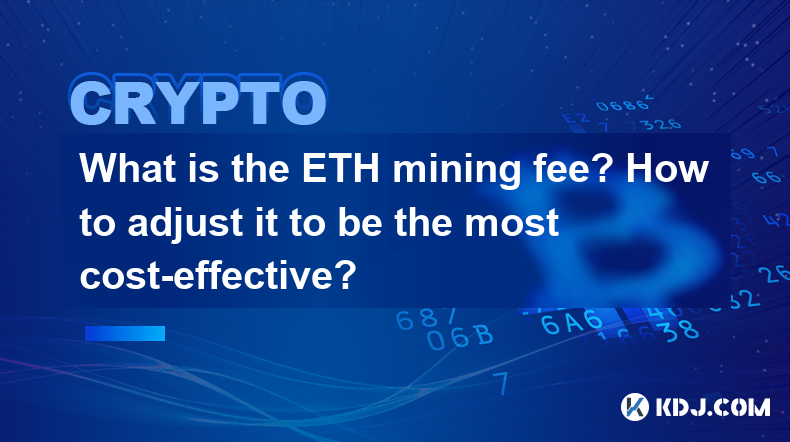
What is the ETH mining fee? How to adjust it to be the most cost-effective?
Apr 28,2025 at 11:56am
The ETH mining fee, also known as the gas fee, is a critical component of the Ethereum network's transaction processing system. This fee is paid by users to miners for including their transactions in the blockchain. Understanding and adjusting this fee can significantly impact the cost-effectiveness of your Ethereum transactions. What is the ETH Mining ...
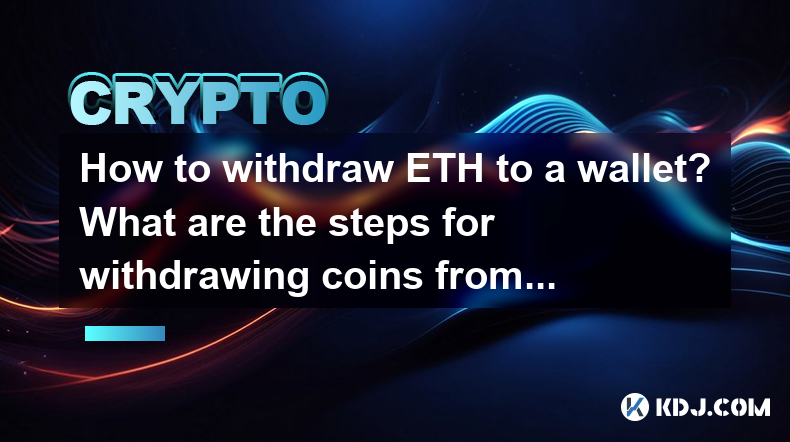
How to withdraw ETH to a wallet? What are the steps for withdrawing coins from an exchange?
Apr 28,2025 at 03:07pm
Withdrawing Ethereum (ETH) to a personal wallet from an exchange is a common task for cryptocurrency users. This process involves several steps to ensure the safe and secure transfer of your digital assets. In this article, we will guide you through the detailed steps required to withdraw ETH to a wallet, as well as provide a general overview of the pro...
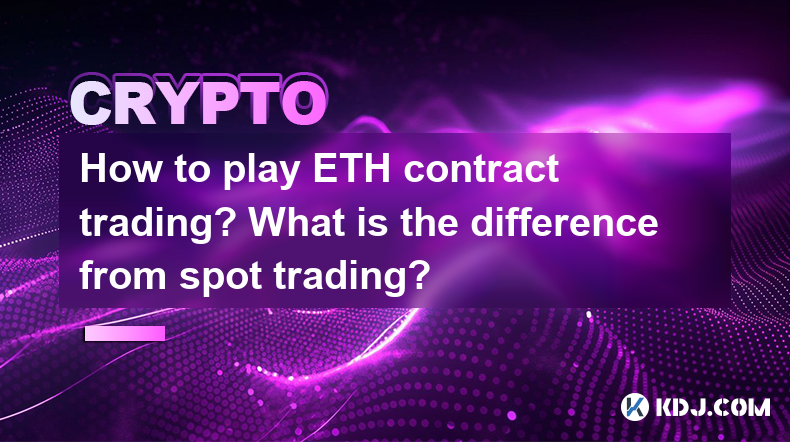
How to play ETH contract trading? What is the difference from spot trading?
Apr 28,2025 at 01:08pm
How to play ETH contract trading? What is the difference from spot trading? Engaging in Ethereum (ETH) contract trading can be an exciting and potentially lucrative venture for those interested in the cryptocurrency market. Unlike spot trading, which involves buying and selling ETH for immediate delivery, contract trading involves trading futures or opt...
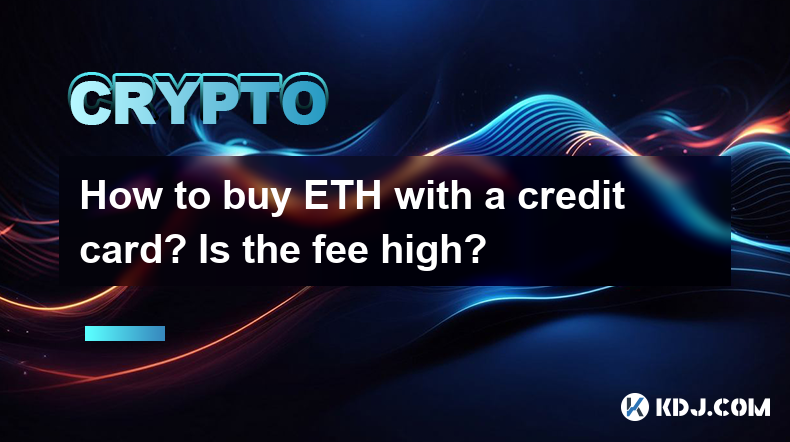
How to buy ETH with a credit card? Is the fee high?
Apr 28,2025 at 12:28pm
How to buy ETH with a credit card? Is the fee high? Buying Ethereum (ETH) with a credit card is a straightforward process that allows you to quickly acquire the cryptocurrency. However, it's important to be aware of the fees involved, as they can be higher compared to other payment methods. In this article, we will walk you through the steps to purchase...
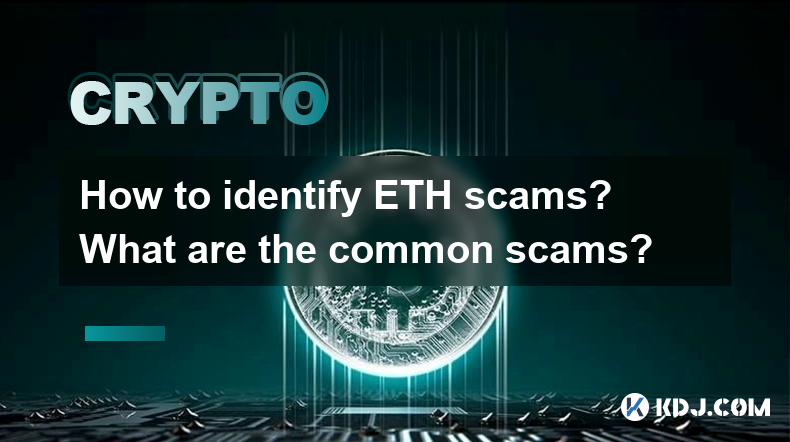
How to identify ETH scams? What are the common scams?
Apr 28,2025 at 12:14pm
Identifying Ethereum (ETH) scams is crucial for anyone involved in the cryptocurrency space. With the rise of digital currencies, the number of scams has also increased, making it essential for investors and users to be vigilant. This article will guide you through the process of identifying ETH scams and highlight the most common types of scams you mig...
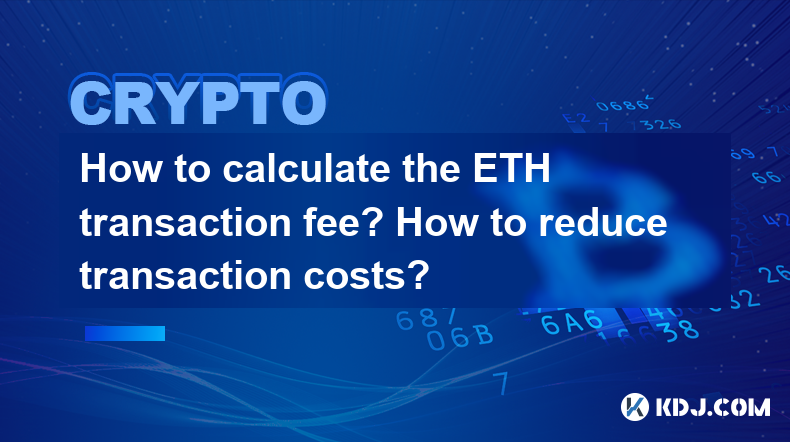
How to calculate the ETH transaction fee? How to reduce transaction costs?
Apr 28,2025 at 12:42pm
Understanding and calculating Ethereum (ETH) transaction fees, as well as finding ways to reduce these costs, are crucial for anyone involved in the cryptocurrency space. Transaction fees on the Ethereum network are influenced by several factors including gas prices, gas limits, and network congestion. In this article, we will delve into the mechanics o...

What is the ETH mining fee? How to adjust it to be the most cost-effective?
Apr 28,2025 at 11:56am
The ETH mining fee, also known as the gas fee, is a critical component of the Ethereum network's transaction processing system. This fee is paid by users to miners for including their transactions in the blockchain. Understanding and adjusting this fee can significantly impact the cost-effectiveness of your Ethereum transactions. What is the ETH Mining ...

How to withdraw ETH to a wallet? What are the steps for withdrawing coins from an exchange?
Apr 28,2025 at 03:07pm
Withdrawing Ethereum (ETH) to a personal wallet from an exchange is a common task for cryptocurrency users. This process involves several steps to ensure the safe and secure transfer of your digital assets. In this article, we will guide you through the detailed steps required to withdraw ETH to a wallet, as well as provide a general overview of the pro...

How to play ETH contract trading? What is the difference from spot trading?
Apr 28,2025 at 01:08pm
How to play ETH contract trading? What is the difference from spot trading? Engaging in Ethereum (ETH) contract trading can be an exciting and potentially lucrative venture for those interested in the cryptocurrency market. Unlike spot trading, which involves buying and selling ETH for immediate delivery, contract trading involves trading futures or opt...

How to buy ETH with a credit card? Is the fee high?
Apr 28,2025 at 12:28pm
How to buy ETH with a credit card? Is the fee high? Buying Ethereum (ETH) with a credit card is a straightforward process that allows you to quickly acquire the cryptocurrency. However, it's important to be aware of the fees involved, as they can be higher compared to other payment methods. In this article, we will walk you through the steps to purchase...

How to identify ETH scams? What are the common scams?
Apr 28,2025 at 12:14pm
Identifying Ethereum (ETH) scams is crucial for anyone involved in the cryptocurrency space. With the rise of digital currencies, the number of scams has also increased, making it essential for investors and users to be vigilant. This article will guide you through the process of identifying ETH scams and highlight the most common types of scams you mig...

How to calculate the ETH transaction fee? How to reduce transaction costs?
Apr 28,2025 at 12:42pm
Understanding and calculating Ethereum (ETH) transaction fees, as well as finding ways to reduce these costs, are crucial for anyone involved in the cryptocurrency space. Transaction fees on the Ethereum network are influenced by several factors including gas prices, gas limits, and network congestion. In this article, we will delve into the mechanics o...
See all articles






















































































